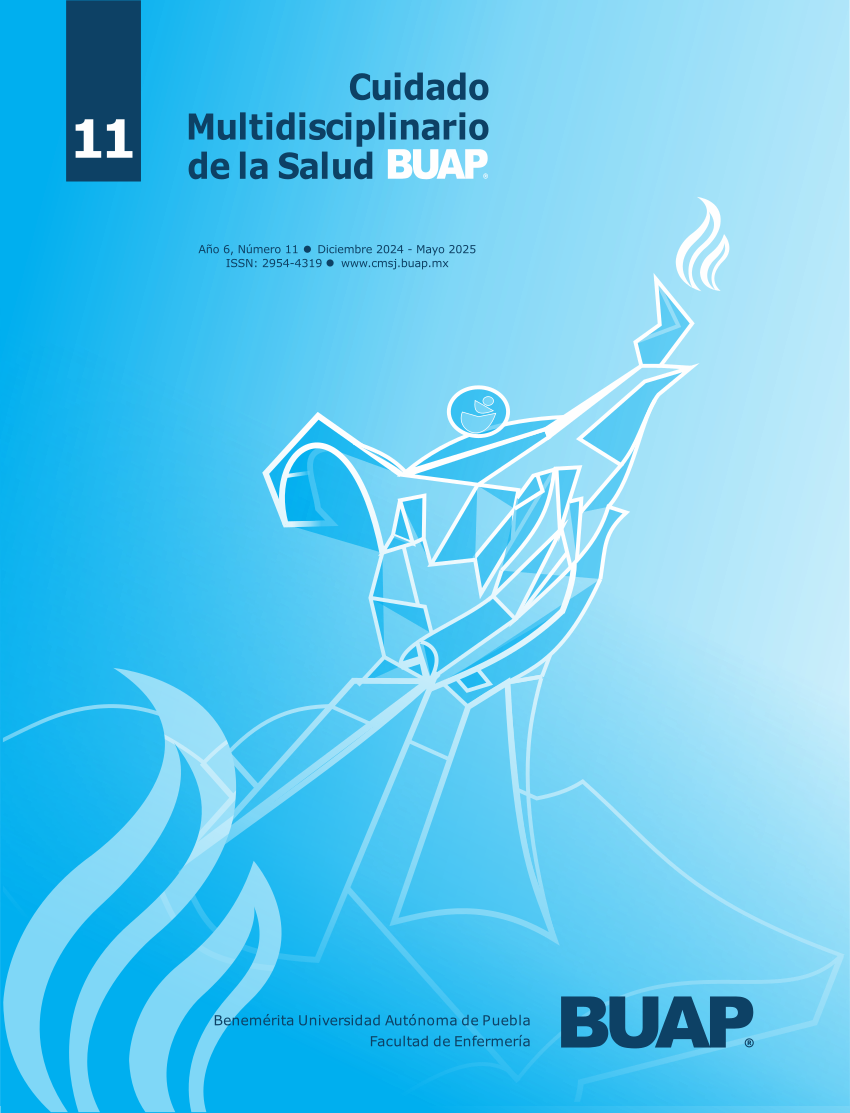Nursing narrative: Jesenia's terminal illness
Keywords:
Nursing narrative, Palliative care, Personal narrativesAbstract
Introduction. In the field of nursing, narratives have gained notable and important growth in recent years. The use of this technique, which allows the replication of stories, situations, and experiences with patients, families, and the healthcare team, has had a significant impact on the growth of the discipline.
Objective. This article aims to analyze a nursing narrative based on the care experience of a 56-year-old patient diagnosed with end-stage liver cirrhosis.
Methodology. To achieve this, elements of nursing knowledge, including worldview and empirical concepts, were identified throughout the article. Different patterns of knowledge were examined, such as personal, empirical, ethical, aesthetic, as well as those related to sociopolitical and emancipatory knowledge. The Peaceful End-of-Life Theory by Cornelia M. Ruland and Shirley M. Moore was applied, which consists of providing the necessary nursing care to create a peaceful end-of-life experience.
Results. The narrative analysis revealed that the implementation of adequate palliative care had a significant positive impact on the experience of both the patient and her family. The patient received comprehensive care that addressed both her physical and emotional needs, including effective pain management and constant emotional support. The family also received guidance and emotional support, allowing them to face the situation more calmly. The importance of the empirical and ethical knowledge of nursing staff was highlighted, which enabled care centered on the patient's dignity and respect. The integration of various knowledge patterns allowed for a holistic and respectful approach.
Conclusion. Narratives in nursing have a significant impact on the discipline, and palliative care, along with adequate psychological support, is crucial to ensuring a peaceful end-of-life experience for patients and their families. The integration of various nursing knowledge patterns allows for a holistic and respectful approach, highlighting the importance of the role of nursing professionals in the end-of-life phase.
References
Bowers, S. P., Chin, M., O’Riordan, M., & Carduff, E. (2022). The end of life experiences of people living with socio-economic deprivation in the developed world: an integrative review. BMC Palliative Care, 21(1), 1–25. https://doi.org/10.1186/s12904-022-01080-6
Campos, V. F., da Silva, J. M., & da Silva, J. J. (2019). Comunicação em cuidados paliativos : equipe , paciente e família. Revisa Bioética, 27(4), 711–718. https://doi.org/10.1590/1983-80422019274354
Carper, B. A. (1978). Fundamental Patterns of Knowing in Nursing. Advances in Nursing Science, 1(1), 13–24. https://doi.org/10.1097/00012272-197810000-00004
Chinn, P., & Kramer, M. (1999). Theory and Nursing Integrated Knowledge Development (5 edition). Michigan: Mosby.
Devarbhavi, H., Asrani, S. K., Arab, J. P., Nartey, Y. A., Pose, E., & Kamath, P. S. (2023). Global burden of liver disease: 2023 update. Journal of Hepatology, 79(2), 516–537. https://doi.org/10.1016/j.jhep.2023.03.017
Díaz, L. A., Villota-Rivas, M., Barrera, F., Lazarus, J. V., & Arrese, M. (2024). The burden of liver disease in Latin America. Annals of Hepatology, 29(3). https://doi.org/10.1016/j.aohep.2023.101175
Facione, P. A. (2017). Pensamento Crítico Holístico no Processo Diagnóstico de Enfermagem. 38(3), 8–9.
Fawcett, J. (2006). Contemporary nursing knowledge: analysis and evaluation of nursing models and theories (Davis Company (ed.); 2nd ed.). Philadelphia: F.A.
Ferla, J. B. da S., Araújo, C. M. de, Stechman-Neto, J., Tonocchi, R. de C., Krüger, S. I., & Berberian, A. P. (2022). Effect of the patient-centered care model on health professional satisfaction: a systematic review. Revista Gaucha de Enfermagem, 43(Special Issue). https://doi.org/10.1590/1983-1447.2022.20210288.en
Fernandes, C. R. C., Porto, I. S. I., & Soares, A. M. M. (2017). El cuidado del cuerpo en el arte, la ciencia y la filosofía de la enfermería. Cultura de Los Cuidados Revista de Enfermería y Humanidades, 47. https://doi.org/10.14198/cuid.2017.47.08
Fitzpatrick, J. J. (2021). Narrative Nursing. Nursing Administration Quarterly, 45(4), 324–329. https://doi.org/10.1097/naq.0000000000000486
Gómez Ramírez, O. J., Carrillo González, G. M., & Arias, E. M. (2017). Nursing theories for research and health care practice in palliative care. Revista Latinoamericana de Bioética, 17(1), 60–79.
Jarrett, S. A., Bley, E., & Kalman, R. S. (2024). Understanding the Role of Palliative Care Within Routine Care of Advanced Liver Disease. Current Hepatology Reports, 23(3), 307–315. https://doi.org/10.1007/s11901-024-00656-5
León-Román, C. (2017). Nuevas teorías en enfermería y las precedentes de importancia histórica. Revista Cubana de Enfermería, 33(4), 1–6.
Osorio Castaño, J. H. (2016). Patrón de conocimiento socio-político en enfermería: reflexiones conceptuales. Revista CUIDARTE, 7(2), 1352. https://doi.org/10.15649/cuidarte.v7i2.319
Ramírez-Giróna, N., Landeros-Olvera, E., & Cortés-Barragán, E. (2020). Nursing narrative: An experience of care in hemodialysis. Enfermeria Universitaria, 17(3), 354–362. https://doi.org/10.22201/eneo.23958421e.2020.3.781
Ruland, C. M., & Moore, S. M. (1998). Theory Construction Based on Standards of Care : A Proposed Theory of the Peaceful End of Life. Nursing Outlook, 169–175.
White, J. (1995). Patterns of knowing: Review, critique, and update. Adv Nurs Sci, 17(4), 73–86.
Downloads
Published
How to Cite
Issue
Section
License
Copyright (c) 2024 The moral rights belong to the author, the economic rights belong to the Benemérita Universidad Autónoma de Puebla.

This work is licensed under a Creative Commons Attribution-NonCommercial-NoDerivatives 4.0 International License.
The moral rights belong to the author, the economic rights belong to the Benemérita Universidad Autónoma de Puebla.






